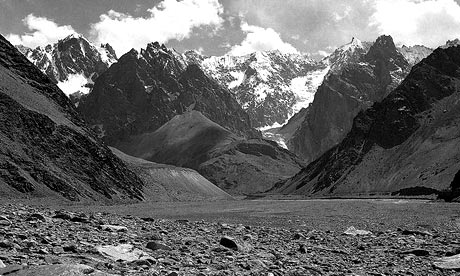
Today, it seems every inch of the world has been measured and mapped. Turn back the clock to 1934 and things were very different
Vast swathes of Asia were blank spaces; uncharted territory. Enter Sven Hedin, a Swedish explorer who made venturing into the unknown his life’s work.
Prior to his most ambitious journey in 1934, the maverick explorer notched up a catalogue of achievements. These included crossing the formidable Taklamakan Desert (where half his crew perished), uncovering ancient Buddhist ruins in Chinese Central Asia and producing detailed maps of Tibet.
Then, at almost 70 years old, he was commissioned by the Chinese to map and mark out two motor roads in the frontier province of Xinjiang, where a battle raged between the government and rebel leader General Ma Chung-Yin, AKA ‘Big Horse’.
‘February 6, 1934 would be a great day in my life,’ he wrote. ‘My responsibility was fearfully heavy. I was in the service of a foreign government, with orders to make motor roads across the greatest desert in the world. It was a wild, almost crazy adventure, a gamble in which I was risking not only other men’s lives but also my own honour.’
He didn’t scrimp on resources. Hedin set off armed with a car, four lorries and a crew of 15: a topographer, engineers, mechanics, drivers, a cook and even an astronomer.
Their push into anarchic, conflict-ravaged territory was a risky affair, all the more so because, in a province almost entirely devoid of motor vehicles, their convoy would make a substantial prize.
Undeterred by omnipresent danger, they nudged deeper into Xinjiang, eventually reaching Turpan. Here, Big Horse’s soldiers seized their vehicles; Hedin was thrown into prison in the city of Korla and nearly executed. After being rescued by White Russians he was captured again and held at Urumqi, an experience he later described as ‘a trial to our patience and our nerves’.
Finally, four months later, the expedition was allowed to continue. Hedin and his team headed off by canoe to Lake Lop Nur to finish their task, looking forward to reaching ‘another world, aloof and serene, through which the desert breezes murmur… whose greatest charm is that no cruelties and no sufferings disturb its peace, and that no men tread its classic soil’.